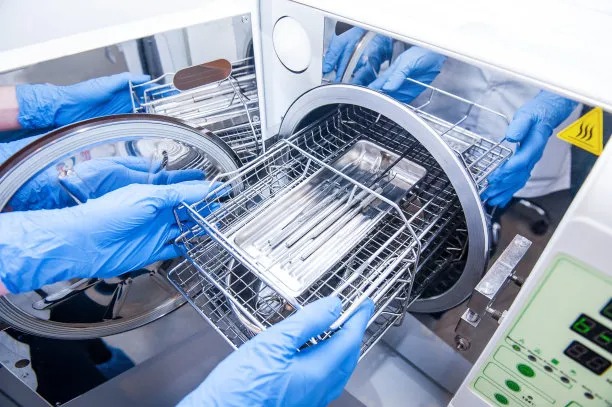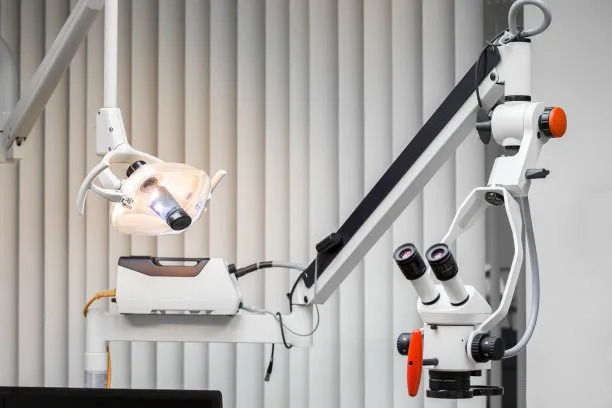Summary: After undergoing a dental filling procedure, proper care and precautions are essential for successful recovery. This article outlines four crucial aspects to consider post-treatment: managing discomfort and sensitivity, maintaining oral hygiene, making dietary adjustments, and scheduling follow-up appointments. Each of these areas contains practical tips and precautions to help ensure the longevity of your filling, minimize complications, and support overall dental health. By following these guidelines, patients can significantly enhance their recovery experience and achieve optimal results after dental treatment.
1. Managing Discomfort and Sensitivity After Filling

It is common to experience some discomfort or sensitivity around the filled area after your dental filling procedure. Ibuprofen or other over-the-counter pain relievers can be helpful to alleviate this pain. Always consult your dentist for the appropriate medication and dosage, especially if you are taking other medications or have health concerns.
Additionally, it鈥檚 important to monitor how long the sensitivity lasts. While it can be normal for a few days, prolonged sensitivity may indicate a problem with the filling or other dental issues. If discomfort persists beyond a week, reaching out to your dentist for a follow-up evaluation is advised.
Furthermore, try to avoid biting down on hard foods or using the affected area until the sensitivity decreases and your dentist gives you the go-ahead. This precaution helps prevent further irritation and potential complications that could arise from premature use.
2. Maintaining a Rigorous Oral Hygiene Routine
Maintaining excellent oral hygiene is crucial for the success of your dental filling. Brush your teeth gently but thoroughly twice a day with fluoride toothpaste. This practice helps to protect the filling and surrounding area from decay and buildup of plaque.
Flossing is equally important, especially around the filled tooth. Food particles can easily get trapped between teeth, which can lead to plaque accumulation. Be gentle while flossing to avoid damaging the filling or irritating the gum tissue, ensuring to clean thoroughly yet carefully.
Consider using an antibacterial mouthwash to further enhance your oral health. This can help reduce bacteria in your mouth and prevent infections around the filling site. However, consult your dentist to ensure the mouthwash is suitable for your situation post-filling.
3. Dietary Adjustments for Your Recovery
After getting a dental filling, certain dietary changes should be made to ensure a smooth recovery. Initially, stick to soft foods such as yogurt, mashed potatoes, or soup for the first 24 hours post-procedure. These foods are not only easy on the teeth but also less likely to irritate sensitive areas.
Avoid extremely hot or cold foods, as well as sticky or hard items, to prevent unnecessary discomfort or damage to your filling. For instance, chewing ice or hard candies can pressure the filling and lead to chipping or dislodgement.
Hydration is also important, but opt for lukewarm water rather than very hot or cold beverages. If you鈥檙e planning to drink coffee or tea, allow them to cool down a bit before consuming. Your body will thank you for these thoughtful dietary adjustments.
4. Scheduling Follow-up Appointments with Your Dentist
Finally, don鈥檛 underestimate the significance of follow-up appointments after a filling. Your dentist may want to see you within a couple of weeks to check the filling for proper fit and response. This is vital to ensure the filling is settling well and that there are no complications.
During these follow-up visits, be honest about any discomfort or issues youve experienced so far. Your dentist can provide remedies or adjustments to guarantee your filling serves its purpose effectively and comfortably.
Regular dental check-ups are also essential. Even after your filling, the guidance of your dentist can help you maintain optimal dental health and prevent future issues. Stick to a routine visit schedule recommended by your dental care provider.
Summary:
By understanding and implementing these essential tips and precautions, patients can significantly improve their experience after a dental filling procedure. A focus on managing discomfort, maintaining hygiene, making dietary adjustments, and scheduling necessary follow-ups are all crucial for a successful recovery. Always remember that your dentist is there to support you throughout this process, and proactive care is key to long-term dental health.
This article is compiled by Vickong Dental and the content is for reference only
Vickong Dental
Vickong Dental is a large medical group established in Hong Kong in 2008 by professors from well-known medical universities in Guangdong and Hong Kong, as well as medical doctors from key national '985' universities (including Master's supervisors and senior professors). The chain of branches brings together expert dentists with PhDs and Master's degrees from Hong Kong and Mainland China, committed to providing high-quality dental treatment.
"Vickong Dental Practices the University Motto of 'Healing and Serving Society,' with a Stable Operation for Sixteen Years. It Has Been honored with Hong Kong Enterprise Leaders's Choice,' and is a Global Trusted Implant Center for the Nobel Implant System. Recommended by Hong Kong Metro Broadcast and Guangdong Television, it Serves Customers from Over Thirty Countries and Regions, Gaining the Trust and Favor of Citizens from the Guangdong-Hong Kong-Macau Greater Bay Area and Surrounding Cities.

Thousands of customers' unanimous praise
The most recognized and highly recommended dental service by customers in the Guangdong-Hong Kong-Macau Greater Bay Area
We Ensure You Receive Detailed Care and Attention Here
Hong Kong standards, Shenzhen prices, Your Trusted English-speaking dentists

Vickong Dental Medical-Grade Instrument Disinfection Process
Vickong Dental Medical-Grade Instrument Disinfection Process

Vickong Dental Chain: A Warm and Comfortable Environment for Treatment






Appointment Hours

Q&A
Why choose Vickong Dental?
Vickong Dental practices the university motto 「Medicine to Benefit Society」, with each branch bringing together highly qualified dentists with doctoral and master’s degrees from Hong Kong and the Mainland, and has maintained seventeen years of steady operation。Recipient of 「2024 Hong Kong Enterprise Leaders Brand」, 「2025 Hong Kong Enterprise Leaders Brand」, a Nobel Biocare Global Trusted Implant Center, and a brand recommended by Metro Radio Hong Kong and Guangdong TV。
To date, we have served customers from more than thirty countries and regions,earning exceptionally high word-of-mouth recognition and trusted recommendations from residents across the Guangdong-Hong Kong-Macao Greater Bay Area and surrounding cities
We have eight major branches in Zhuhai、Shenzhen,and a consultation and service assurance center in Hong Kong,so you can book a free consultation at any time for any questions,which is very reassuring.
If I do not accept the quotation after the CT scan, will I be charged??
No! As long as the actual treatment has not started, you will not be charged any fees.
Will there be any additional charges during the treatment process?
No, there won’t be any additional charges. Before treatment begins, we will clearly explain the treatment plan and its corresponding fees. Only after the patient agrees and signs the consent form will we proceed with the dental service.
Can I pay in Hong Kong dollars?
Yes. Vickong Dental accepts payment in Hong Kong dollars. The amount will be converted based on the exchange rate of the day, and the applicable rate will be clearly communicated to you in advance.
Can I reschedule my appointment at any time?
Yes. Please contact us via **WeChat** or **WhatsApp** as early as possible, providing your original appointment time and details, along with your preferred new date and time slot for rescheduling.













